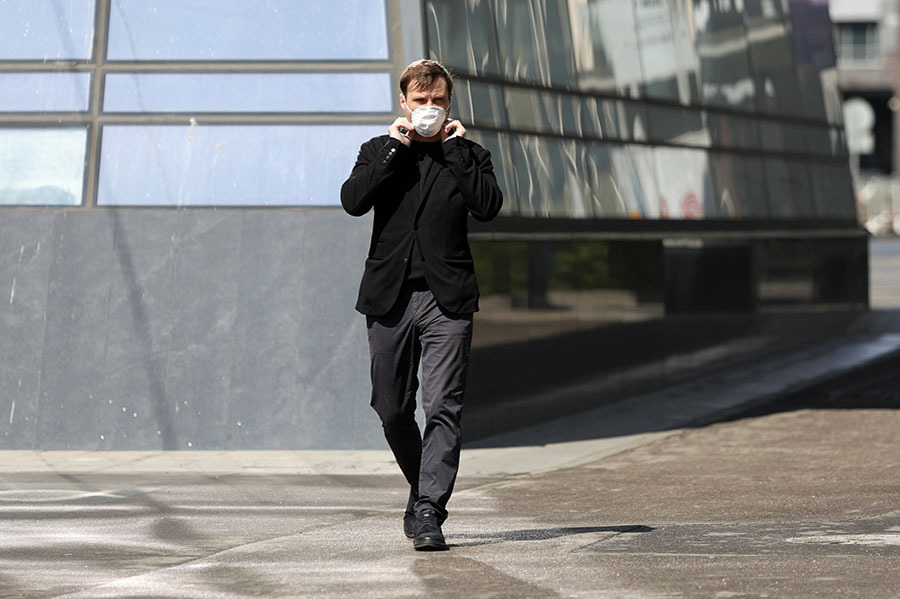The head of the Federal Medical and Biological Agency (FMBA) Veronika Skvortsova spoke about preclinical studies of the drug "Meflohin." According to her, the drug completely suppresses the cytopathic effect (the appearance of degenerative changes in cell cultures) of the coronavirus 48 hours after infection.
“We are now on the basis of our four leading FMBA centers, are conducting a clinical study of Mefloquine in comparison with other antiviral drugs, and we see certain advantages in patients with moderate severity. Not less than 70% have a steady consistent improvement in their condition, ”said Skvortsova.
The head of the FMBA noted that if the drug is used before infection, the effect of coronavirus infection is reduced by 50–75%. However, she pointed out that this is only preliminary data and the drug has side effects.
At the same time, Russian scientists selected several successful protein samples for creating vaccines, Skvortsova specified, noting that coronavirus has a complicated structure.
In addition, the head of FMBA reported that among patients with coronavirus infection, the most patients with blood group II.
According to her, this phenomenon may be due to the fact that group II is the most common in the population.
“The prevailing blood type in infected people is II, which is far from other blood types,” she said during a press conference.
At the same time, people suffering from diabetes and metabolic disorders tolerate coronavirus worse. This can be explained by the fact that COVID-19 mixes with other viruses and bacterial flora, Skvortsova explained.
“In the event that there are chronic cardiovascular diseases, if there are metabolic disorders, primarily obesity, and various endocrinopathies, and diabetes, and so on - these people carry this virus very hard,” she said.
- AGN "Moscow"
- © Kirill Zykov
Skvortsova also noted that on average the incubation period of the coronavirus is about five days, but in some cases it can reach 14 or more days.
“This is not one to two days, as with other acute respiratory viral infections, but nevertheless, as a rule, this is up to a week. Nevertheless, indeed, in a sufficiently large number of infected persons, the incubation period lasts up to 14 and even up to 20 days. This is determined by the state of the human immune system, ”explained the head of FMBA.
The head of the FMBA indicated that the current stage of the distribution of COVID-19 in Russia can be considered a plateau, but added that it is not known how long this period will last. She recalled that a further change in the epidemiological situation will depend on the Russians, since an increase in the number of cases was observed a few days after Easter, after 1-2 and 9 May. In addition, she noted that about half of coronavirus cases in Russia carry the disease without symptoms.
“It is difficult to predict how much we will be at a stable level; it can be called a plateau. But there are positive points to which you should pay attention. We see that the number of hospitalized is decreasing, the proportion of asymptomatic is high, the severity does not increase, ”Skvortsova pointed out.
Recall, according to the site stopkoronavirus.ru, the number of detected cases of COVID-19 in Russia reached 262 843, 2418 died, 58 226 people recovered.
In addition, FMBA has established a coordinating center for the preparation of blood plasma for the treatment of patients with coronavirus. At the same time, Skvortsova warned that with multiple organ failure and systemic inflammation, plasma transfusion for the treatment of COVID-19 can lead to an exacerbation of the disease.
“If we are talking about the most serious, critical patients who are in intensive care already on mechanical ventilation, they have more than 75% of their lungs actually turned on and morphologically changed, already the plasma does not give positive effects,” she said.
In turn, WHO Director of the Health Emergencies Program, Michael Ryan, said large-scale coronavirus testing in Russia is well organized.
“In Russia, large-scale testing is very well organized, tests are provided to the public ... But it is clear that a sharp increase in the number of new cases is a stress for the entire healthcare system,” TASS quoted him as saying.
Earlier, Moscow Mayor Sergei Sobyanin said that from May 15 in the capital, mass testing of residents for antibodies to coronavirus will begin. To conduct it, the Moscow government installed automatic blood analyzers. Every few days, approximately 70 thousand Muscovites will receive an invitation for a free analysis. Screening results will be published on mos.ru portal, based on which, in particular, decisions will be made to mitigate restrictive measures.

